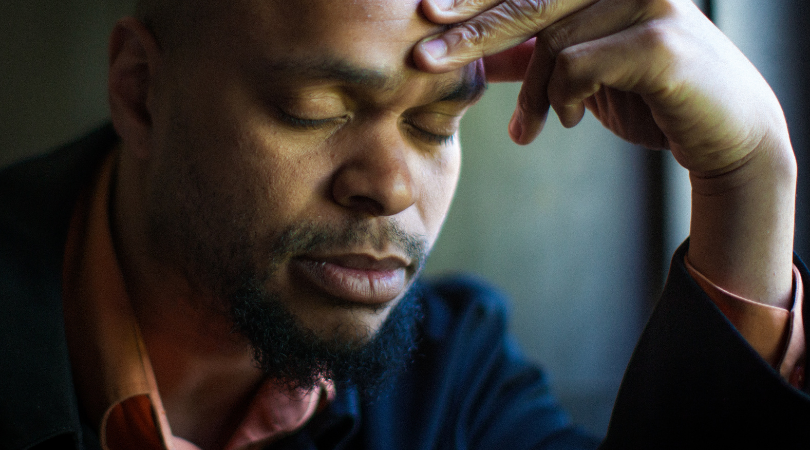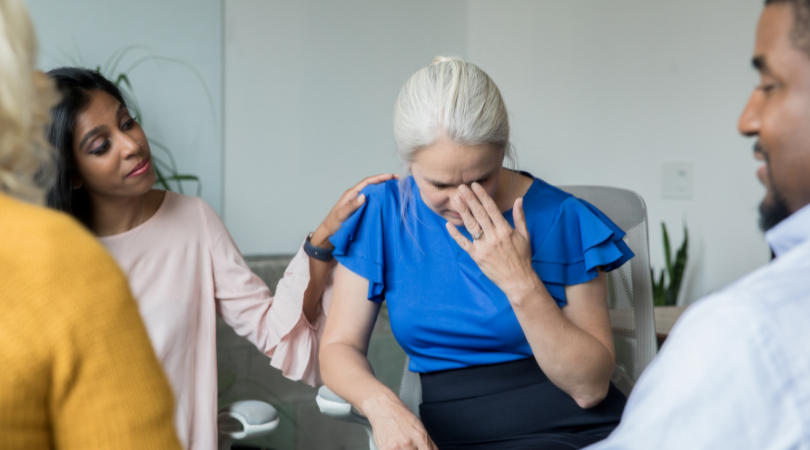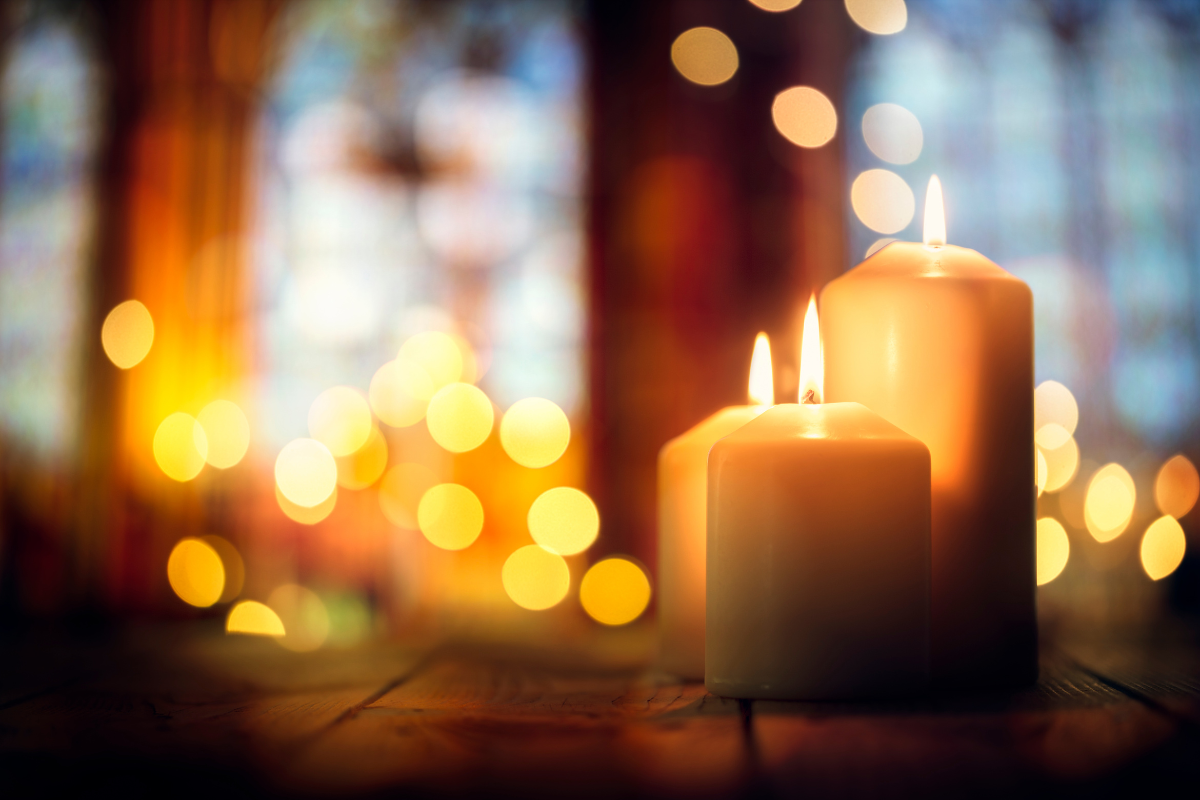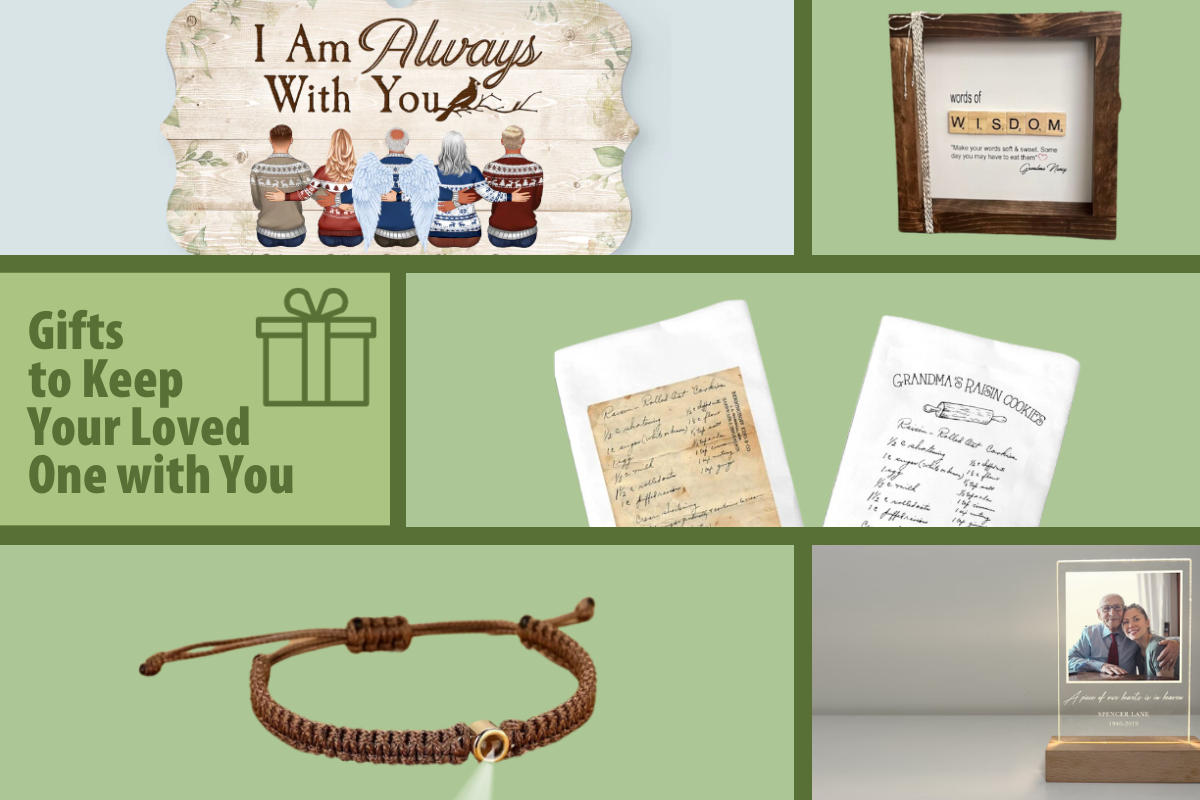Why Experts Talk About Symptoms, Not Stages, of Grief

Grief is a normal and natural response when we suffer a loss. While everyone will experience a loss at some point, the symptoms of grief are often misunderstood – both by the people going through it and the people around them. By raising grief awareness, individuals in mourning can better understand their own reactions and their friends and loved ones can better support them with patience and compassion.
Stages of Grief
In 1969, Elisabeth Kübler-Ross’s On Death and Dying was published, introducing the world to her five stages of grief: denial, anger, bargaining, depression, and acceptance. While these emotions and experiences are common in those grieving a loss, the term “stages” is misleading. There is no straight path or progression of emotions that mourners follow. There is no timeline. Grief is unpredictable, with good days and bad days. We never “get over” the loss of a loved one. Each individual and each loss will have its own unique process for healing.

Symptoms of Grief
When we stop thinking of grief as a timeline, we can look at the actual physical, mental, emotional, and spiritual reactions individuals may experience. Simply knowing these feelings are normal can help some people in mourning. Understanding the symptoms of grief is also helpful for those around them.
What a mourner is experiencing today may fade and be replaced with other reactions. It is not a linear process. Mourners may circle back to emotions. The bereaved may go through a period of time when they feel at peace and then return to sadness. All of this is normal.
Common Feelings for Mourners :
- Agitation – inability to relax, shaken up
- Anger – a strong emotion of displeasure with others or with an event
- Anxiety – feeling nervous and worried
- Apathy – things do not seem important anymore, not caring what happens
- Betrayal – feeling someone purposely chose to hurt you
- Despair – to lose hope
- Disbelief – trouble accepting the loss really happened
- Emptiness – feeling hopeless and sad, with nothing to give others
- Fear – the individual does not feel safe or worries for the safety of loved ones
- Guilt – self-blame, feeling regretful about doing or not doing something
- Helplessness – feeling like there is nothing one can do to make a difference in a situation
- Impatience – want things right away and have trouble waiting
- Isolation – removed or away from others
- Loneliness – feeling alone
- Numbness- can’t feel any emotion
- Powerlessness – having no control over what is happening
- Relief – to feel free from stress, pain or burden
- Sadness – feeling unhappy and sorrowful
- Shame – feeling dishonored or disgraced
- Shock – feeling surprised and disturbed by a sudden powerful event
- Strength – tough, powerful
- Thankfulness – appreciative
- Uncertainty – feeling unsure
- Uselessness – feeling worthless
- Weakness – frail, powerless
Common Mental Reactions to Grief
- Difficulties in concentrating
- Continuously thinking about the loss
- Difficulty making decisions
- Believing you were responsible for the loss
- Low self-esteem
- Increased or decreased dreams
- Increased nightmares
- Thinking everyone is watching you
- Thinking you are different from everyone else
- Self-destructive thoughts
Common Physical Reactions to Grief
- Sleeping changes – too little or too much
- Weight and appetite changes
- Tiredness
- Feeling weak
- Deep sighing
- Muscle tension
- Energized: feeling strong/invincible
- Pounding heart
- Headaches and stomach aches
- Easily shaken by certain sights and sounds (particularly those that remind you of the loss)
- Increased number of colds and infections
Common Spiritual Reactions to Grief
- Feeling lost and empty
- Feeling abandoned or punished by God
- Feeling like you don’t belong
- Questioning a reason to go on living
- Feeling angry with God
- Questioning your religious beliefs
- Needing to receive forgiveness
- Feeling spiritually connected to the person who died
- Feeling spiritually connected to God
- Finding hope in prayer/spiritual beliefs
- Finding purpose in life
Common Behaviors and Social Interactions When Grieving
- Trying to stay constantly active
- Overachieving
- Underachieving
- Being preoccupied and forgetful
- Changes in work performance
- Blaming others
- Being more clumsy
- Crying a lot, or more easily
- Wanting to spend more time alone
- Not caring about things, wanting to drop out
- Wanting more attention and affection
- Dropping out of social activities
- Pulling away from other’s attempts to touch and comfort you
- Seeking approval and reassurance from others
- Being aggressive, getting more arguments
- Showing more creative expression through music, writing, and art
Finding Grief Support
Many people feel alone when they’ve experienced a loss, even when surrounded by caring friends and family. A grief support counselor or therapist can help those who have suffered a loss understand the grief symptoms they are experiencing and provide tools to help them cope with their feelings. Many communities also have grief support groups that connect mourners to individuals going through a similar experience.
Crossroads Hospice & Palliative Care offers complimentary grief recovery program in all of the communities we serve. Please call us at 1-888-564-3405 to speak with a bereavement coordinator in your area.
Recommended Reading:
Bereavement vs Depression: Grief is not an Illness
How to Cope with the Death of a Friend
Five Ways to Honor Your Loved One’s Memory
If you found this information helpful, please share it with your network and community.
Copyright © 2017 Crossroads Hospice & Palliative Care. All rights reserved.





